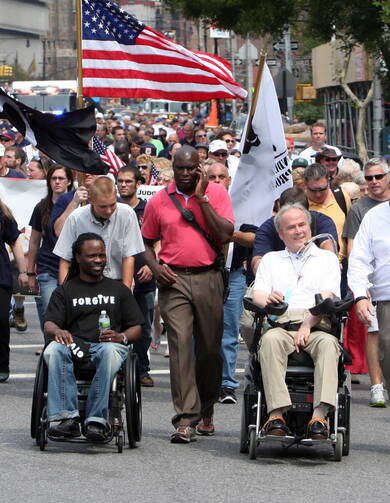In December a minority of 38 senators defeated a proposal to ratify an international treaty called the Convention on the Rights of Persons With Disabilities, based on the Americans With Disabilities Act. The convention would promote full equality before the law for disabled persons everywhere. To Senator John Kerry, this was a moral issue, an opportunity to lead other nations to treat the disabled as well as America does.
A treaty requires a simple two-thirds majority. The vote was 61 to 38—five short of victory. Two of the senators who had promised support switched to no at the last minute. The treaty had bipartisan support, particularly from three Republican war veterans, President George H. W. Bush, Senator John McCain and Senator Bob Dole, who at 89 was wheeled in from Walter Reed Medical Center by his wife, Elizabeth, to bolster the cause and later wheeled out before the humiliating defeat.
Leading the opposition was the former presidential candidate Rick Santorum, father of a disabled child, who phoned in to “The Glenn Beck Program” and called another senator’s reasoning “a big joke.” Opponents feared that a U.N. committee could threaten American sovereignty and intrude on the parental rights of Americans to educate their own children.
The fight is not over. The bill will come before the Senate again in early 2013. This is a moral issue because it protects the most vulnerable; it is a bipartisan opportunity to do the right thing; and it is an ecumenical opportunity for the leadership of many faiths to call for justice with one voice. It deserves broad public support.








